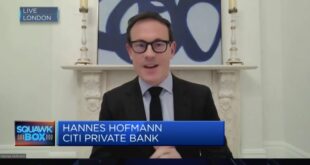
Alessandro Bianchi | Reuters
Qatari Foreign Minister Sheikh Mohammed bin Abdulrahman al-Thani attends a news conference in Rome, Italy, July 1, 2017.
Even if Saudi Arabia and Qatar can patch up their differences, greater economic cooperation in the region appears unworkable. The kingdom and its allies have granted Doha two more days to meet their list of 13 demands. Failure to reach a deal could escalate the dispute, further hitting investors and regional economies. But even a compromise would be unlikely to patch up divisions between the Gulf’s Arab states.
Qatar’s refusal to yield to its neighbours’ ultimatum is hurting the region. The coalition, led by Riyadh and including the United Arab Emirates, has imposed a blockade after accusing the sheikhdom of supporting terrorist groups and being too close to Iran. Extending the deadline for Qatar to comply with demands – which include shutting down the Al Jazeera news network and agreeing to financial inspections – at least gives mediation a chance. Failure could lead to a prolonged economic siege, possible retaliation by Qatar to restrict gas supplies or abandon its currency peg, and an increase in the still-remote threat of military escalation.
More from Breakingviews:
Theresa May’s dilemma is Mark Carney’s opportunity
Naspers’ addiction to Tencent is unhealthy
U.S. steel war invites needless collateral damage
Regardless of the outcome, though, regional cooperation in the Gulf is on hold. Beyond bonds of religion and the inter-marriage of their royal dynasties, the Arab states involved in the current squabble have been formally bound together since 1981 by the Gulf Cooperation Council. Established in the wake of the Iranian Islamic revolution in 1979, the GCC provided collective security for the six oil-rich monarchies and a platform to develop joint policies on trade, customs tariffs and monetary policy. Since then monetary policy and financial markets have converged in the region, which had a combined output of $1.6 trillion in 2016.
The current rift probably spells the end of some key economic policies and reforms. Plans to generate new sources of government revenue, including a value-added tax at a standard rate of 5 percent across the bloc, could now be shelved. Other key pillars such as the free movement of residents, trade and capital across the GCC are also in doubt, as is a more ambitious plan to create a currency union. The lack of reform will make it even harder for the GCC states to diversify their oil-dependent economies. Whatever the result of the current dispute, the alliance looks broken.
Commentary by Andy Critchlow, Middle East editor at Breakingviews. Follow him on Twitter @baldersdale.
For more insight from CNBC contributors, follow
@CNBCopinion
on Twitter.
 EU News Digest Latest News & Updates
EU News Digest Latest News & Updates


